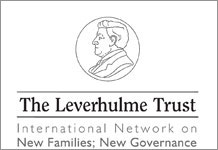
The workshop will focus on 'meanings and understandings of family solidarity and family regulation'
Leverhulme International Network Announces Third Workshop in Notre Dame, USA
The third workshop of the Leverhulme International Network on New Families; New Governance will be held at the University of Notre Dame, USA, on the 27th and 28th March 2014, to discuss the theme Meanings and understandings of family solidarity and family regulation. Within the workshop, the implications of shifting notions of family for ‘solidarity’ (the moral, cultural and legal obligations between family members) and for the state’s ability to regulate through transmission of cultural, social and legal messages about family life will be explored.
Experts from the UK, Australia, America and Europe will present papers to an invited audience of academics for debate and discussion on the common and different themes arising in the different jurisdictions around the Meanings and understandings of family solidarity and family regulation
In the Network’s third workshop, in the USA, the focus will be on Meanings and understandings of family solidarity and family regulation and it is intended to build on aspects of the themes pursued in the first two international workshops. It will pick up on the theme of ‘voices’ (explored at the first Exeter workshop) to consider further whose voices are heard (or not) at the regulatory interface between the state and family life on issues of caring and financial solidarity. Similarly, it will consider if the use of legal and moral messages as a potential part of the ‘de-legalisation’ of family dispute resolution in different jurisdictions – a key theme explored in the Network’s second workshop in Melbourne (April 2013). It will explore differential responses to how the trend towards the ‘smaller state’ and the use of dispute resolution outside courts is operating alongside an apparent increased focus on ‘risk’ and on intervening in ‘problem families’, what forms that intervention is taking; what (if any) cultural dimensions are factored in to regulatory mechanisms and whether this is complementing or replacing more traditional family solidarity in an era where high rates of family breakdown has become an accepted social norm.
Date: 14 January 2014
